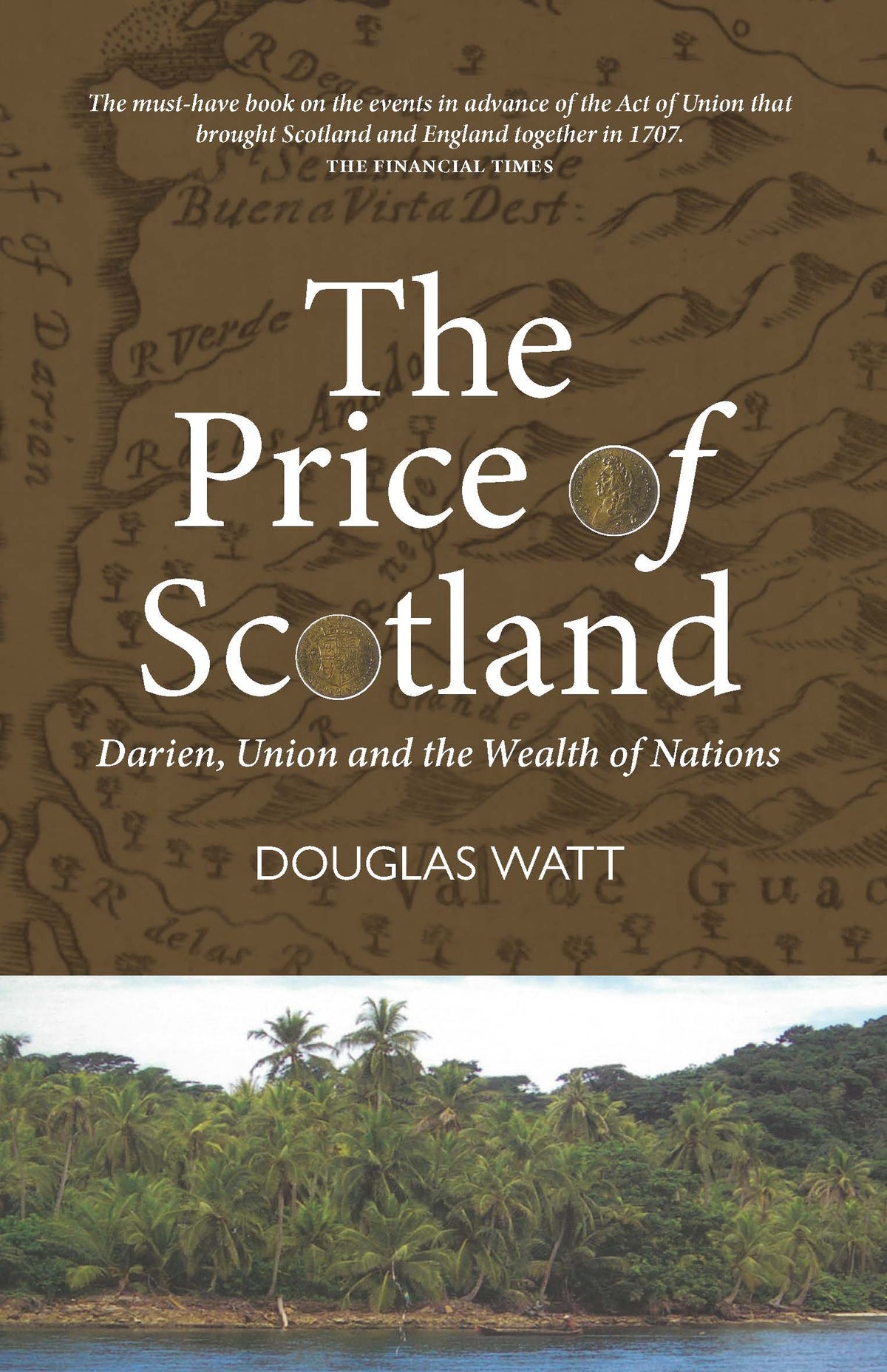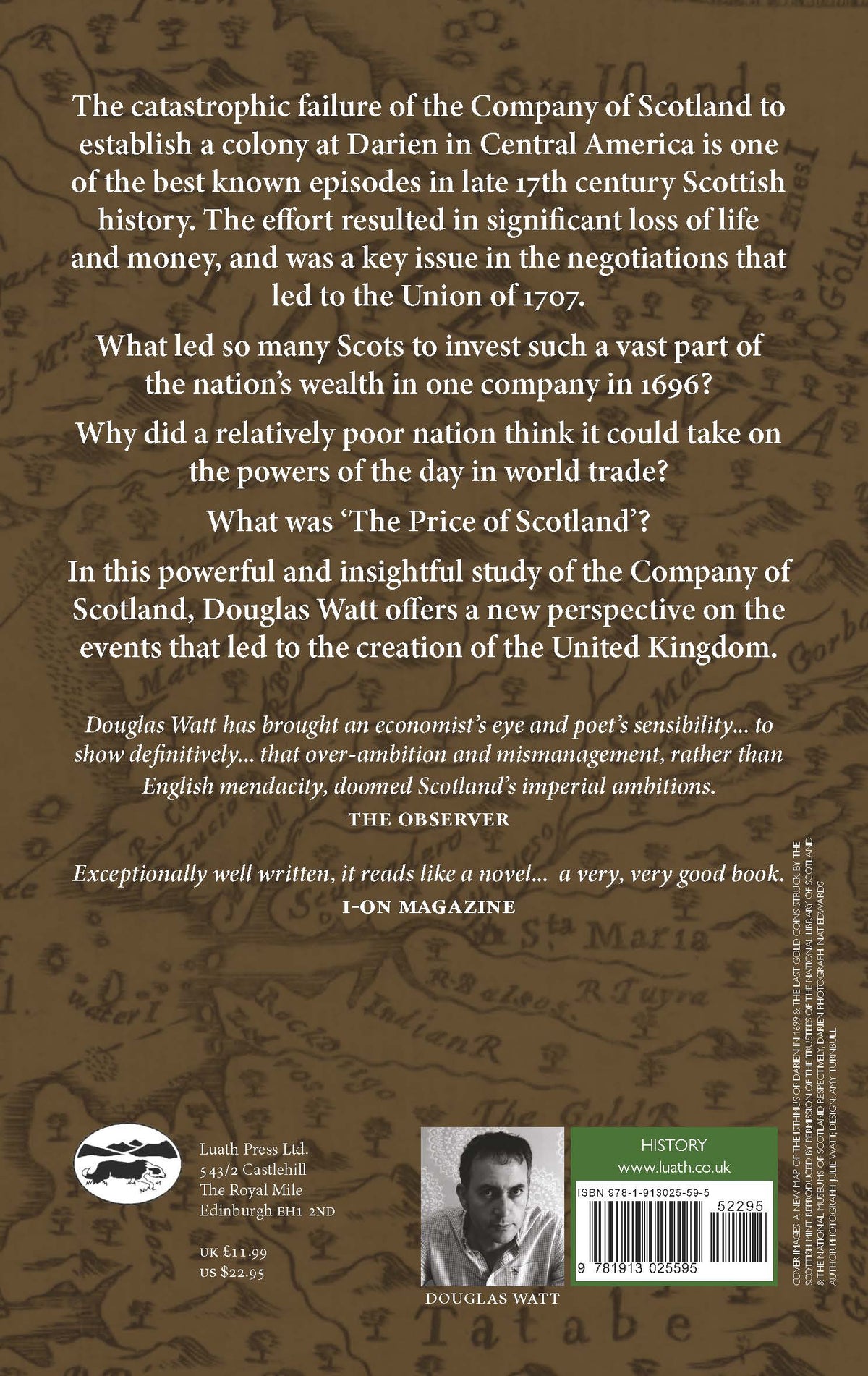The Price of Scotland
Darien, Union and the Wealth of Nations
- Regular
- £11.99
- Sale
- £11.99
- Regular
- £11.99
- Unit Price
- per
Winner of the 2008 Senior Hume Brown Prize in Scottish History.
Our Ebooks are powered by Glassboxx
Click here to learn about our Ebooks.
About the Book:
The Price of Scotland covers a well-known episode in Scottish history, the ill-fated Darien Scheme. It recounts for the first time in almost forty years, the history of the Company of Scotland, looking at previously unexamined evidence and considering the failure in light of the Company's financial records.
Douglas Watt offers the reader a new way of looking at this key moment in history, from the attempt to raise capital in London in 1695 through to the shareholder bail-out as part of the Treaty of Union in 1707. With the tercentenary of the Union in May 2007, The Price of Scotland provides a timely reassessment of this national disaster.
Reviews:
Douglas Watt has brought an economist's eye and poet's sensibility in The Price of Scotland... to show definitively... that over-ambition and mismanagement, rather than English mendacity, doomed Scotland's imperial ambitions. THE OBSERVER
The Price of Scotland treats Darien as a financial mania. THE FINANCIAL TIMES
Exceptionally well written, it reads like a novel. As I say - if you're not Scottish and live here - read it. If you're Scottish read it anyway. It's a very, very good book. i-on Magazine
The must-have book on the events in advance of the Act of Union that brought Scotland and England together in 1707 is Douglas Watt’s The Price of Scotland. It’s a fantastic run-through of the “catastrophic failure” of the Darien Scheme – the creation of the Company of Scotland to establish a Central American colony. THE FINANCIAL TIMES
About the Author:
 DOUGLAS WATT has combined in The Price of Scotland his twin loves of Scottish history and finance. He was educated at Edinburgh University where he gained his PhD in Scottish History, and has written a number of articles based on the results of his post-doctoral research. He worked for nine years as an investment manager and is currently working for First State Investments in Edinburgh. Douglas Watt lives in Linlithgow with his wife Julie and their three children.
DOUGLAS WATT has combined in The Price of Scotland his twin loves of Scottish history and finance. He was educated at Edinburgh University where he gained his PhD in Scottish History, and has written a number of articles based on the results of his post-doctoral research. He worked for nine years as an investment manager and is currently working for First State Investments in Edinburgh. Douglas Watt lives in Linlithgow with his wife Julie and their three children.








